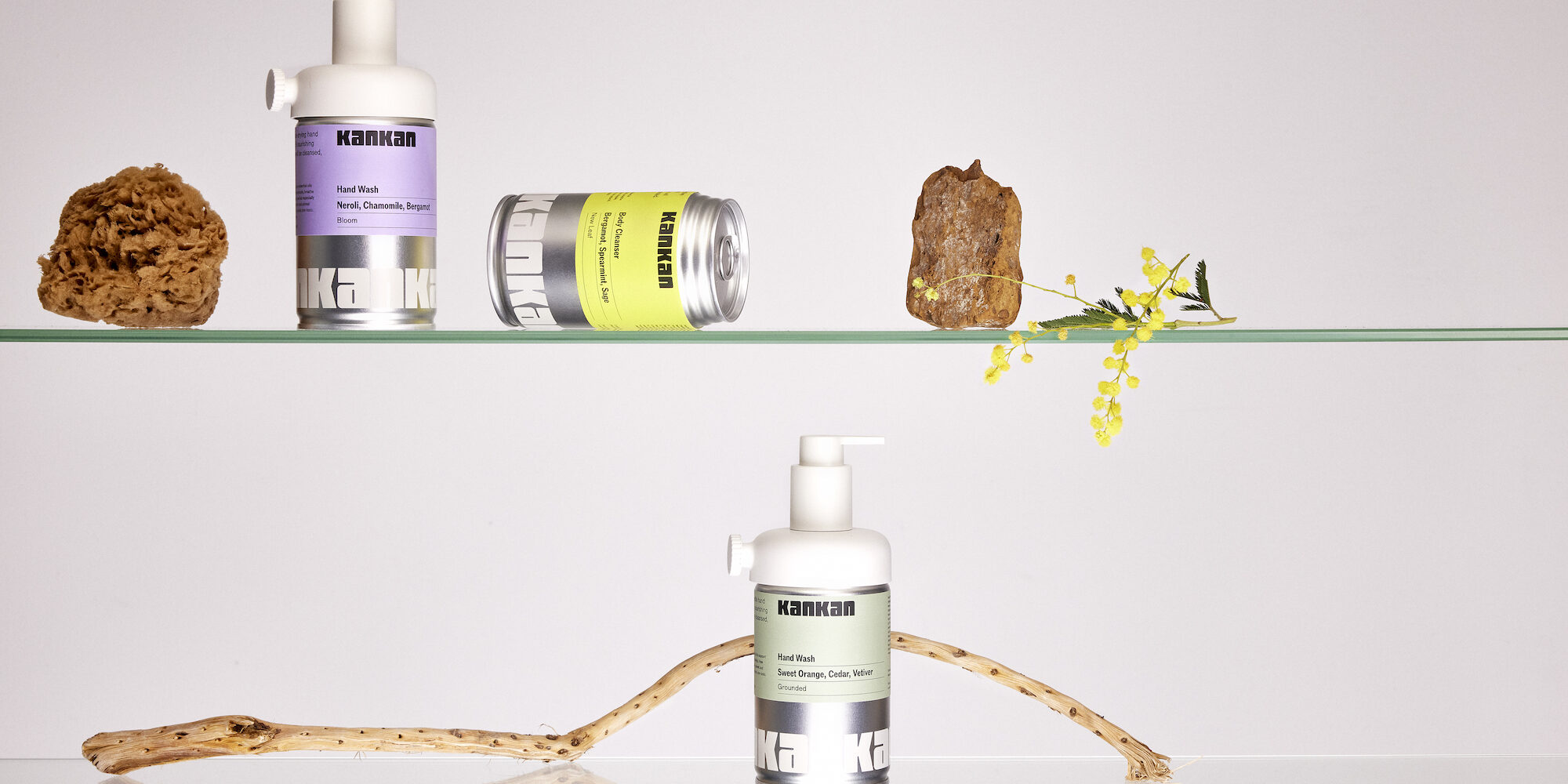
Personal Care Brand Kankan Upgrades Refill System To Ease The Burden On Consumers
“A lot of the sustainable choices out there are asking a lot of the consumer,” says Kankan co-founder Eliza Flanagan. “You have to either go to a refill store or you have to decant things or you have to return packaging in the post.”
To reduce the burden on consumers, British personal care brand Kankan has upgraded its refill model to center on aluminum cans with reusable pumps. Previously, its model required people to decant products from aluminum cans into refillable glass jars prior to use. “I mean, I can’t return expensive clothing that doesn’t fit, let alone pieces of packaging. It didn’t make any sense that that could be a real thing that could really scale on the level it needed to,” acknowledges Flanagan.
Kankan tapped the design firms Morrama and Two Times Elliott to transform its model and aesthetic with cutting-edge packaging that hailed the power of its plant-based ingredients. The brand partnered with Somerset manufacturers to create new scents utlizing byproducts of the essential oil industry alongside fruit and flower waters. “We really felt that we wanted to go back and develop a range of scents that were really uniquely celebratory of this linking to nature and the circularity of nature,” says Flanagan.
Kankan’s assortment has two hand washes in the scents Grounded and Bloom and two body washes in the scents New Leaf and Harvest. Grounded has sweet orange, coriander and vetiver notes; Bloom has neroli, chamomile and bergamot notes; New Leaf has bergamot, spearmint and sage notes; and Harvest has lemon myrtle, geranium and petitgrain notes. Kankan’s starter set is priced at 29 pounds or around $36 at the current exchange rate and comes with one 300-ml. can and one pump. Refillable cans are priced at 18 pounds each or around $22.
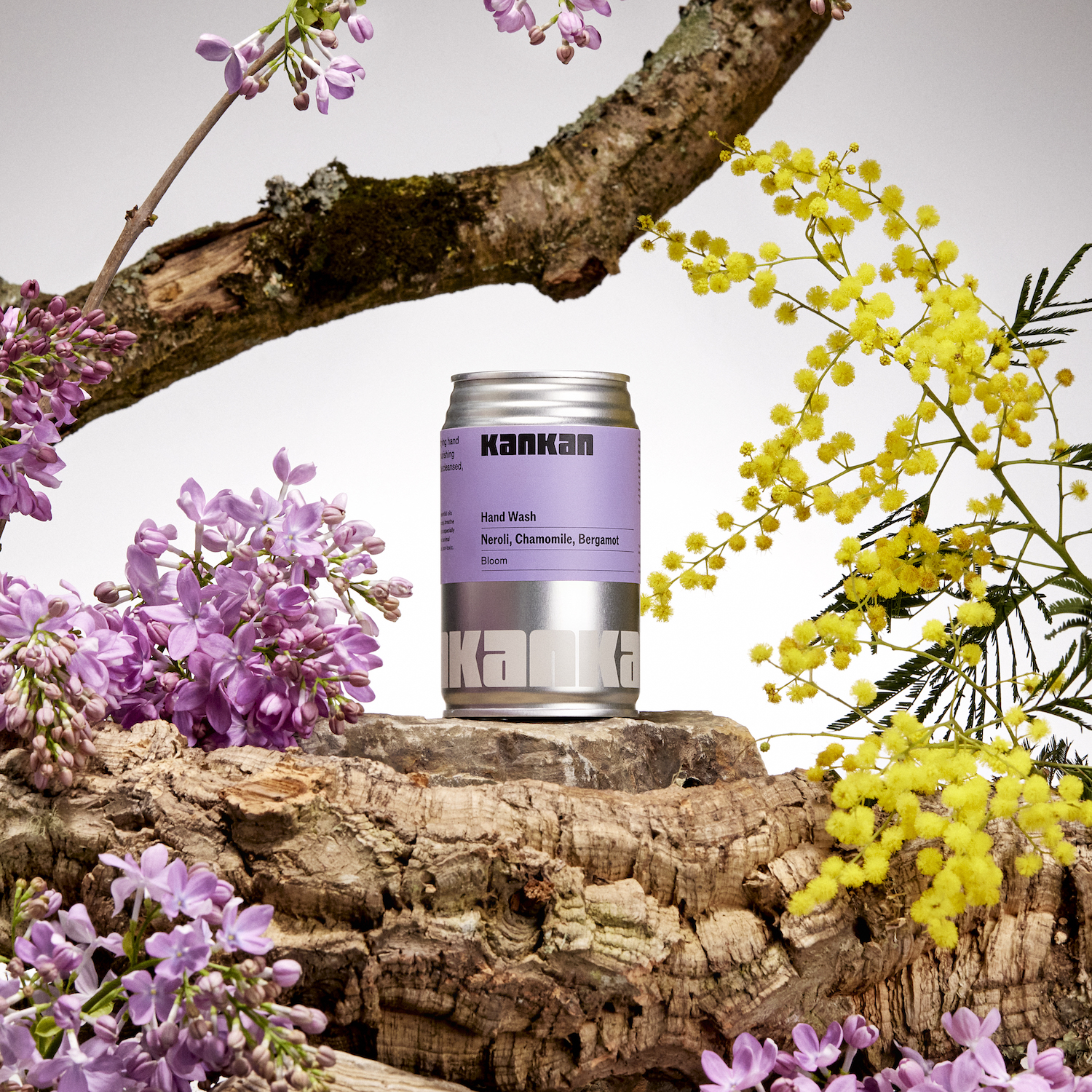
The new refill model allows Kankan to scale with wholesale partnerships that were tricky to figure out with its initial system. Kankan is interested in partnering with boutiques, hotels and restaurants. Flanagan explains the earlier approach “made it very difficult for us to ensure that the quality was maintained with shipping of our products around the world or around the U.K.. That was a real piece of work for us.” Now, she says, “We’re really poised to able to offer multiple different ways to get Kankan out there.”
Getting rid of glass bottles has been on Kankan’s vision board from its beginning in 2019. Eliminating them removes a step and allows the brand to expand into product formats like creams that have a thicker viscosity that’s challenging to decant. Kankan will be introducing shampoo, conditioner, body moisturizer and hand moisturizer over the next few months, and Flanagan hopes it will extend into skincare and sun protection products down the line.
While Kankan has improved its model, Flanagan is the first to admit it’s not perfect. The brand’s reusable pumps are constructed from 50% post-consumer recycled (PCR) and 50% virgin plastic. Flanagan says, “We’re always looking for better, but that was the best on the market at the time.”
With its renovations, Kankan is emphasizing the performance aspect of its products as well as its eco-conscious packaging. “We didn’t want to just be a plucky packaging brand,” says Flanagan. “We really began to understand that, whilst consumers are keen and looking for sustainable alternatives in their lives across all aspects, ultimately we still all are wanting products that work really well for us. So, if the product isn’t great, it doesn’t matter how wonderful the sustainability credentials are or the recyclability of the packaging is, people are still always going to be performance driven.”
Kankan is out to draw consumers that aren’t only those Flanagan describes as “dark green.” Dark green consumers are enthusiastic adopters of sustainable products such as solid personal care bars. Flanagan points out consumers are accustomed to liquid personal care products and associate them with the feeling of being clean.
“Our consumer is really someone that does care for the environment, wants to make better choices than what they currently have, but is also really driven by the quality of products and the feel of them.” says Flanagan. “Whilst there is a move to solids, which we totally and utterly 100% celebrate, there are still a huge number of consumers out there that just won’t ever do that. So we were really looking at the space of removing any sort of barriers to behavior change and then also looking at how can we make this experience a real pleasure rather than a chore?”

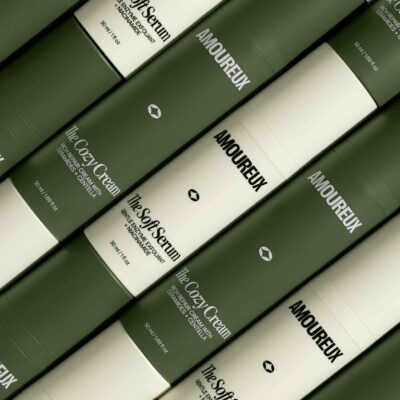
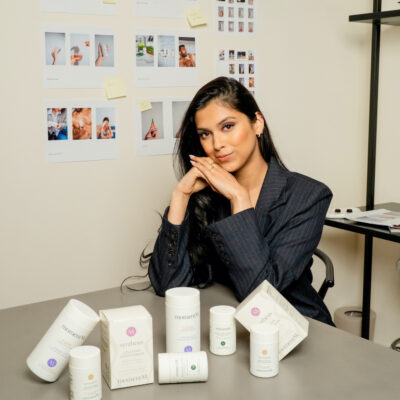
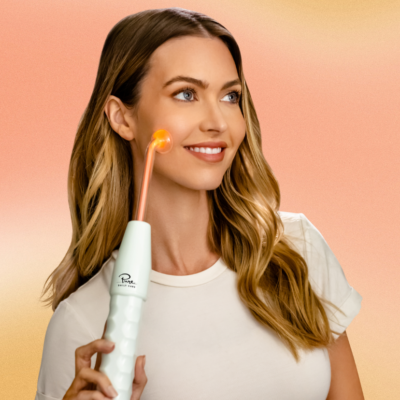
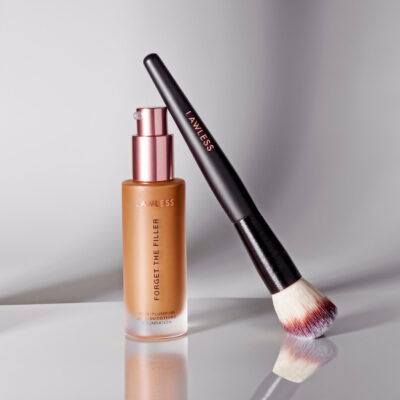
Leave a Reply
You must be logged in to post a comment.